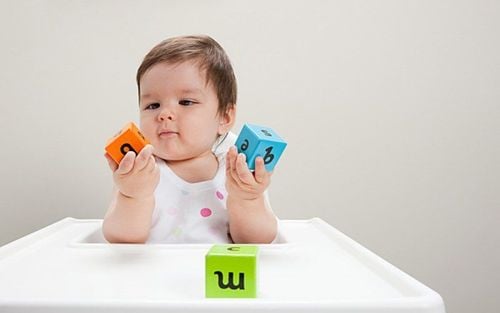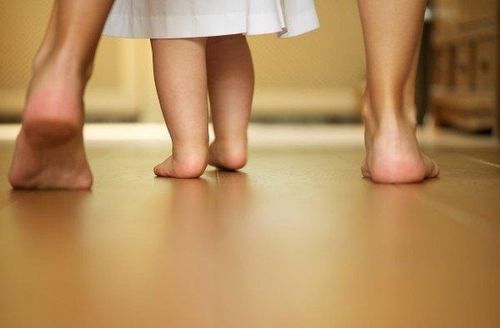This is an automatically translated article.
Parents with young children need to add a lot of knowledge related to children's health checks. To prepare for your 1-year-old's checkup, find out what to expect at the checkup. Parents may also want to consider additional questions a doctor is likely to ask and prepare answers in advance.
1. What will the doctor do when examining a 1-year-old baby:
Weigh and measure baby
To know the exact weight, parents will need to take off all of the baby's clothes. The doctor will weigh the baby, measure the length and circumference of the baby's head. The doctor will then mark the results on a growth chart, allowing parents and doctors to track the baby's growth rate.
Comprehensive physical examination of the child
Cardiovascular and respiratory: Use a stethoscope to listen to heart rate and lung sounds. It can detect abnormal heart rhythms or pathological breathing sounds that suggest breathing problems.
Eyes: Check for signs related to congenital eye disease and other problems. The lacrimal gland and the system of tear ducts are also examined for abnormalities such as blocked tear ducts.
Ear: Look for signs of infection in the ear and observe how a 1-year-old responds to sounds.
Oral: signs of infection can be noticed when the doctor looks at the oropharyngeal mucosa. A normal one-year-old baby has grown a number of new teeth. The doctor should note to advise the appropriate oral care for the child's parents.
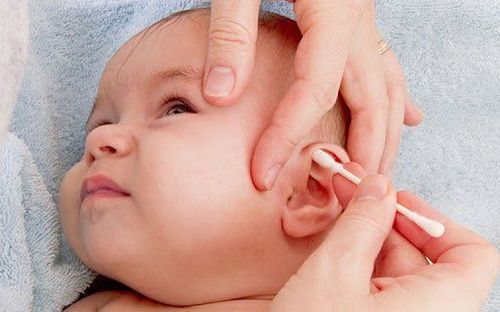
Khám lâm sàng cho trẻ giúp phát hiện dấu hiệu nhiễm trùng ở tai nếu có
Head: Check the condition of the anterior and posterior fontanelles, as well as the shape of the baby's head.
Body: Muscle tone and reflexes should be assessed during all general physical exams for children. Also check your baby's skin for rashes and pallor of the skin and mucous membranes. Pale skin is a sign of iron-deficiency anemia, which babies are most at risk for between 9 and 24 months of age.
Abdomen: Gently press on the abdomen to check for hernias in weak points of the abdominal wall or abnormal enlargement of abdominal organs if present.
Genitals: Remove the baby's diaper and check for signs of infection in the external genitalia and urinary opening.
Hips and Legs: Move your baby's legs around to look for hip problems. One-year-old children with normal development are able to rotate, flex, and flex their hips.
One-year-old immunizations
Children will be vaccinated against Hib , pneumococcal , chickenpox (varicella), MMR and hepatitis A (combined in two or three shots). In addition, the child is vaccinated against hepatitis B, and polio if the third dose has not been given before.
The doctor should have an assistant who can manage the vaccination program. Vaccination is often recommended at the end of each appointment so that parents have time to comfort their baby in case the baby is fussy.
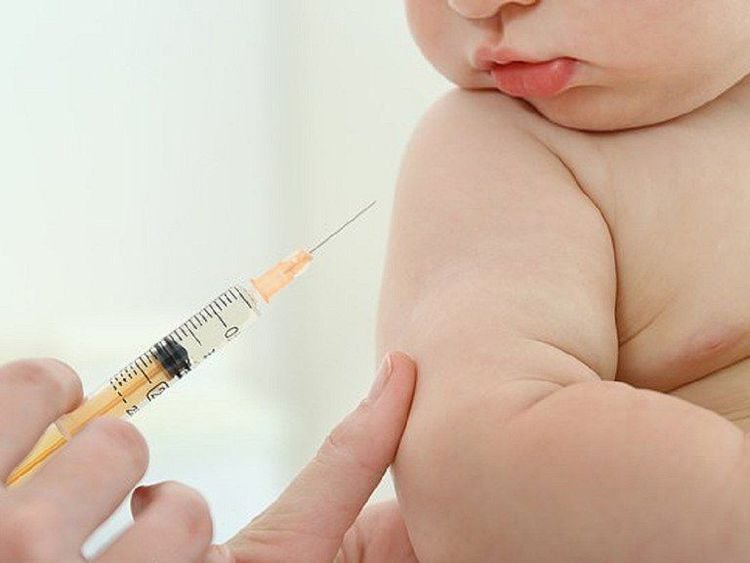
Tiêm phòng cho trẻ một tuổi
Listen to parents
The doctor will be available to listen and address any other concerns parents have regarding the child's health, such as questions about vitamins and treatment of injuries , cuts or abrasions, ask the parents some more questions (see below), and help them understand what is normal at this age. In addition, the doctor will order blood tests to screen for iron deficiency anemia and assess the child's risk of lead exposure and order screening blood tests if necessary.
2. What do young parents usually expect when examining a 1-year-old baby:
Compared to the actual work that will take place at children's well-being visits, parents of children typically expect the following:
Weigh and measure the child to ensure that the child is still growing at a steady and healthy rate compared to other children of the same age. Check the child's heart and breathing rate. Check your child's eyes and ears. Measure your baby's head circumference to monitor brain development. Answer any questions parents have about vitamins when there is a need to use them. Address any parent concerns about the health of their 12-month-old babies, including how to treat colds, coughs, wound management, and life-threatening injuries such as bumps and falls. Provide information on do's and don'ts to build discipline in children. Make sure your child is continuing to learn new skills and not losing old ones. Provides insight into a child's development, temperament, and behavior. Assess your child's risk for lead exposure and order screening blood tests, if needed. Order blood tests to screen for iron deficiency anemia.
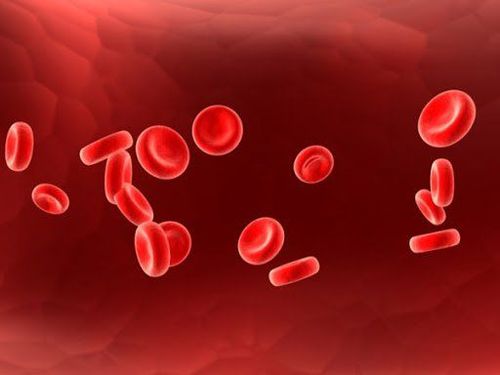
Trường hợp bệnh thiếu máu do thiếu sắt cần xét nghiệm máu để tầm soát bệnh
3. Questions the doctor may ask when examining a 1-year-old baby:
How often do children sleep? A 12-month-old baby may wake up frequently during the night. Children may feel unhappy and reluctant to go to bed. Your doctor may have helpful suggestions, especially if you can provide detailed information about your baby's time and sleep patterns. Most 12-month-olds sleep more than 11 hours at night and less than 3 hours during the day.
How do children eat? 12-month-old babies can feed themselves with their hands and drink from a small cup. Most children triple their birth weight by their first birthday. However, parents should not worry too much if the child is underweight or slightly overweight.
How many teeth does the child have? Many 12-month-old babies have up to 8 teeth. While some other children still have not. Your child may experience redness, swelling, and pain as the teeth erupt, and your doctor can suggest ways to alleviate these unusual symptoms. As soon as teeth emerge, start brushing your child's teeth once a day.
Is the child standing and walking skillfully? By now the child is probably able to stand on his own. He may have even made his first moves. If not, don't worry - many babies don't walk until they're 14 or 15 months old. But if your child can't bear his or her own weight on his or her feet, tell the doctor. In addition to standing and walking, your child should also crawl or walk around in some other way. If your child is unable to do so, let the doctor know.

Trẻ ăn uống thế nào?
Does the child point to objects? Between 9 and 12 months, most children begin to point at things that capture their attention, such as animals and toys. It is a non-verbal way of communicating with people around and is an important step in language development.
What does the child say? At this age, most children can put syllables together and make sounds like single words, say "mama" and "dada," and can say a few other words. Let the doctor know what your child understands. Children should know and respond when called by their own names and other familiar words and show interest in other people's conversations. If your baby doesn't make any sounds or makes less noise than before, tell your child's doctor.
How are the children's social skills? Most 1-year-olds enjoy playing games with others. Children will imitate everyday actions like sweeping the floor or brushing their hair and most of the time will be excited and curious about everything around them. Children will likely seek out interactions with familiar family members and will be anxious when separated from their parents or surrounded by strangers.
How are children's fine motor skills? 12-month-olds love to point to objects and can use both hands together when playing with objects. If your child is not using both hands equally, tell the doctor.
Have you noticed anything unusual about your child's eyes or the way he sees things? At each physical examination of the child, the doctor should check the structure and alignment of the eye as well as the correct movement of the child.
How is the child's hearing? If your 12-month-old doesn't turn his attention to the source of the sound, tell your doctor. Potential hearing problems detected early can go a long way toward treatment.
Vinmec International General Hospital now has a Children's General Health Checkup Package, for children under 18 years old.
In the health checkup package, your baby will be comprehensively examined, from eyes, teeth, blood pressure, weight to necessary tests, combined with diagnostic imaging. The examination package helps you check your baby's overall health, screen for symptoms for early detection and treatment if needed.
Please dial HOTLINE for more information or register for an appointment HERE. Download MyVinmec app to make appointments faster and to manage your bookings easily.






